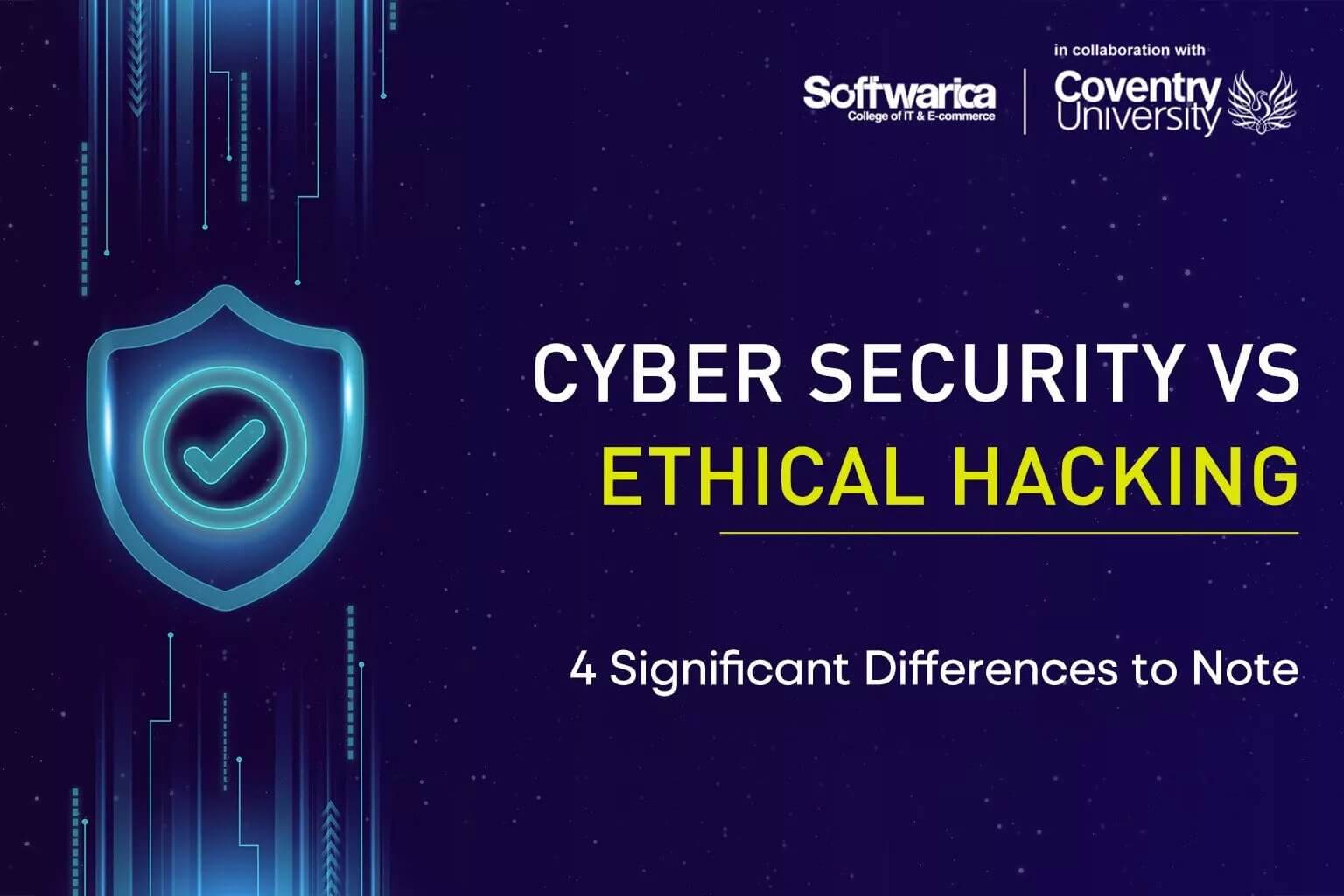
Tips on how to protect against Cybercrime in Nepal
The transformation of the technological field has made criminals more nimble and more exclusive than ever before. If the man with ill intent robbed the bank of China sitting in the USA, you can logically understand the dimension of the problem.
In the present day, our lifestyle and livelihood have been highly dominated by computers and communication networks. The constant flux of ICT and networking in particular cyberspace has offered new opportunities for criminals motivated to perpetrate crime, and exploit the online credentials, vulnerabilities and attacks on the nations’ sensitive information.
Like other countries, Cybercrime in Nepal has also gotten new hype in the past few years. In this article, we are going to discuss the Tips on how to protect against Cybercrime in Nepal.
So, without any ado, Let’s get started.
What is Cybercrime?
Cybercrime is the activities that a criminal performs by using a computer or network device. Cybercrimes depend upon the intent of criminals, they can do the crimes whether to make a personal profit or to intentionally harm or damage victims’ property and disable them. Apart from these approaches, spreading malware, illegal information, image, text, audio or other materials are the major intent of the cybercriminal (The criminal who does digital crime). While some cybercriminals develop the virus and breach the data of the company once the victim interacts with the virus.
Cybercriminals not only focus on the specific type of organization rather any firm could be the victim.
Types of Cybercrimes
Cybercrimes have too many devastating reverse effects, depending upon their type. Some of the specific types of cybercrimes are mentioned below:
- Internet and Email frauds.
- Theft of personal financing credentials.
- Theft and selling of the corporate
- Ransomware attacks
- Cryptojacking
- Cyber Espionage
- Cyber Extortion
These are examples of cybersecurity threats in the digital world. So, we have to be shielded from these types of rising Cybercrimes.
Rising of Cybercrime in Nepal
Nepal is not an exceptional territory for measuring and doing surveillance of cybersecurity threats. The constant flux of internet users all over the world, and whispered use of computers amongst people have resulted in the commission of the crime.
According to the cyber bureau in Nepal, between 2016 and 2020 a total number of 5,574 cyberattack cases have been filed and the number has been increasing per year. In the fiscal year 2020/21 total number of 3,906 cases have been filed, as reported by Nepali Police. There is a lack of adequate laws to deal with cybercrimes in Nepal, Electronic Transaction Act – 2008 (ETA – 2008) has provisions for jail up to five years and a fine up to Rs. 20,000/-.
The emergence of e-commerce platforms has increased the cybercrimes within Nepal and the government is compelled to introduce and regulate new and strict security on “information superhighways”. The reason behind the rise of cybercrimes in Nepal is as mentioned below.
- The emergence of new e-commerce platforms in the last few years.
- Rise in the number of potential perpetrators.
- Lack of precautions.
- Due to unamended, and outdated laws as a need of time.
- Investigation and lack of cyber forensics.
If we compare the past few years to the present, then we get that the pattern of cybercrimes in Nepal has drastically changed. If we talk about the trend of previously seen cybercrimes then we came to know that email blackmail, SMS blackmail, and illicit publications were the only detected problems in the cyberspace of Nepal. But today it has been modified as devastating data piracy and data breach.
Tips on how to protect yourself against cybercrime
Update System and Software
Updating systems and software really help you to secure your data. The main reason behind the updating of the system and software is that cybercriminals are engaged to crack the older version of the system and software. After the successful crack of the system and software, they try to insert their malicious link and get unauthorized access and which might result in stolen of your personal data from your devices.
So companies frequently add new security protocols and other changes in their product in order to assure the strength of the system and software.
Use Anti-Virus Software
Anti-virus software is software which blocks the virus from entering your system and software. The virus is a piece of code which has replicating features and the ability to destroy the system.
Anti-Virus software is really important for everyone who uses digital technology as it helps to secure the system from viruses.
Use Strong Password
There is the trend of making passwords as easy as people remember them. But what if someone guesses your easy password and gets access to your personal data? Moreover, the hacking technique called “Bruteforce attack” can easily find poor and common passwords with the help of mathematical and hacking fundamentals. So, if you want to make your personal information within you only, then you have to use a strong password for your every account.
Let’s talk about a strong password. What exactly is a strong password?
Well, the password that includes all the required elements is considered a strong password:
- At least one uppercase letter (A-Z).
- At least one special character like !@#$%^&*()_+{}:”?><|.
- At least use numbers (0-9)
- Your password must be more than 8 characters.
Never Open Attachment in Spam Email
Spam emails are those emails which come to the Spam section. Have you ever wondered why email comes in your spam section? Technically, the mail address which is reported by various users that they are getting suspicious content from those emails is considered a Spam email. After being spammed once, the mail sent from the email to the user goes to the spam section. So, never ever try to open the attachment from your spam email.
Note: if genuine mail is spammed in your email then first confirm the validity of the email then only bring those spam emails to your inbox and open the attachment.
Don’t Provide your Personal Credentials
Unless the links and the field are verified and validated, don’t provide your personal credentials on any of the websites or any platforms. It is because many cybercriminals are circulating to steal the personal credentials of the victim. Along the way, the cybercriminals make a clone of the software or a program in order to take your personal information which is called “Phishing”, and these attacks push you to provide your personal information there.
While logging into the websites you must have to verify the web address, and then you can provide your information. Unless the verification if you logged in from random websites then there would be a high chance to get your personal data leaked.
Keep Eyes on Your Bank Account
Always keep your eyes on your bank account, because according to ERPScan about 47% of cyberattacks are targeted financial institutions. Pirated eyes of hackers have the main target on the banking institution. Check and verify in a timely manner whether your account is facing some problem or suspicious activities. Assure that your account is not having any problems. If any problem arises with your bank account, immediately contact the Bank and put your queries.
Protect your e-Identity
Nowadays, the high emergence of the trend of purchasing goods from the e-commerce platform has got super hype. There are few people who secure their e-identity and have the idea about the privacy of the e-identity. The main problem in cyberspace is that Cybercriminals always target the high potential sector from where they can easily steal the most crucial and personal information to attempt attacks. You must have to keep in mind that you shouldn’t have to provide the information without any authentic proof. If you input your e-identity such as email, and password that is logged at the e-commerce website where your payment credentials are linked may lead you to be a victim of a cyberattack.
Contact Right Person for Help
If you feel that you have been attacked or hacked in any term of digital attacks, you must contact the right person for help. The right person here is not a hacker who can counterattack against the cybercriminal, you should have to inform the legal infosec agencies or the police or your parents to reach the safe zone. Sometimes people contact the wrong person to counterattack the crime but it multiplies their problem rather than getting solutions. So, be sure to call the right person for help.
Use Two-Factor Authentication
Two-factor authentication is the approach of securing the account linked with the always-available contact number you have. It decreases the chance of getting hacked because you can able to login after the input of the OTP number that comes to your contact detail. The primary motive of two-factor authentication is to stop middle-man attackers.
Aware Family Circle
Aware family and concerned not to do things in cyberspace without having proper knowledge and evidence. Sometimes, families reveal their personal information where cybercriminals find a loophole to enter. In order to be secure, telling the drawbacks of cyberattacks also plays a crucial role.
Conclusion
While increasing the threats in cyberspace in Nepal, cybercrime also has pulled the formal educational framework to the ground. In order to fight back against cybercrime and for precaution there are many professionals engaged in Ethical Hacking and Cybersecurity.
If you are also interested in making your future in cybersecurity Softwarica College provides the best course on Ethical Hacking and Cyber Security degree in Nepal. Our duty is to provide you with the finest knowledge and practical skill and make you a successful InfoSec professional. If you want to enroll in this program with us, feel free to contact us.





